See the latest events from the CUSSH project
2019
20-24 May 2019: Research in China, Beijing and Ningbo, China
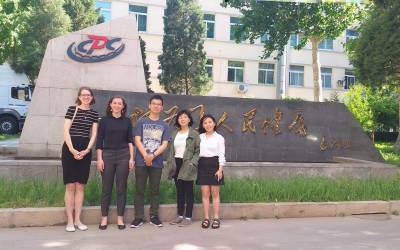
Colleagues in Beijing
From left: Helen Pineo (UCL), Jo Hale (UCL), Yanlin Niu (Beijing CDC), Yujuan Yue (China CDC), Ke Zhou (UCL).
- Read more
The team included Helen Pineo, Jo Hale and Ke Zhou from UCL and Yanlin Niu from Beijing CDC, and was kindly hosted by Prof Qiyong Liu from China CDC. Many Beijing and Ningbo CDC colleagues helped to coordinate the interviews and site visits to relevant facilities. For example, in Ningbo the team visited a state-of-the-art waste transit centre with a community education centre and roof-top community garden. Helen delivered a lecture to around 60 Beijing CDC staff members on her urban health indicator research which was well-received.
21-22 May 2019: UK-Kenya Research Symposium, Nairobi, Kenya - Healthy Cities: Affordable housing and sustainable infrastructure
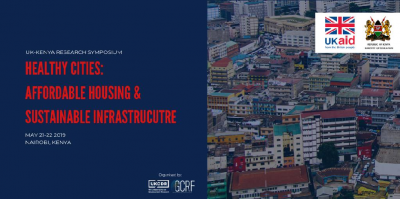
- Read more
The symposium was co-hosted by the UK and Kenya governments and supported by UK Research and Innovation (UKRI) through the Global Challenges Research Fund (GCRF) and the UK Collaborative on Development Research (UKCDR). Blessing and Mike took part in a panel discussion on day 1 and presented about the CUSSH project on day 2. A joint statement from the UK and Kenyan government following the symposium announced a commitment to continue working together on affordable housing and sustainable infrastructure research, policy and practice in Kenya.
UKCDR report on affordable housing:
https://www.ukcdr.org.uk/resource/uk-funded-research-on-housing-in-kenya/
British High Commission in Kenya:
https://www.gov.uk/government/news/uk-and-kenya-host-research-symposium-on-affordable-housing--2
UKRI:
https://www.ukri.org/news/affordable-and-sustainable-cities-bring-uk-and-kenyan-researchers-together/
14-16 May: CUSSH Annual Meeting 2019
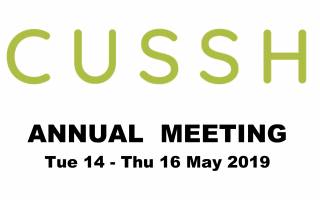
- Read more
Researchers from a large spectrum of disciplines, city representatives, consultants, education and advocacy experts held passionate discussions in working sessions about the initial research findings after the first year of transdisciplinary work. They together decided on the next steps of this project on large scale transformational change for urban sustainability and health.
To follow updates on publications or events related to CUSSH, please follow us on twitter at @ComplexUrbanSys
14 May: CUSSH Stakeholder Event: Are urban green spaces good for our health?
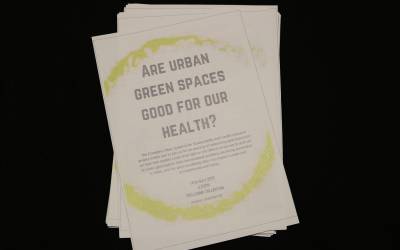
- Read more
The room in the premises of the Wellcome Trust Collection was almost too small for the interested audience gathered to listen to the 2 high-level panelists. Kate Jones talked about Re-wilding Cities, asking whether this is good for our health. Kate is a Professor of Ecology and Biodiversity at University College London. Her research investigates the interface of ecological and human health, using statistical and mathematical modelling to understand the impact of global land use and climate change on ecological and human systems.
Then the public could then hear from Nicola Murphy-Evans about the CLEVER Cities project and how nature can provide solutions to urban challenges and help create much more liveable neighbourhoods. Nicola is Senior Project Manager in Greater London Authority's Environment team. She has worked on a variety of City Hall’s regeneration and environment projects for the past eight years. She has interests in urban regeneration, green infrastructure, urban design, citizen wellbeing, and community empowerment. She is currently working on CLEVER Cities, an EU H2020-funded project looking at how nature can provide solutions to urban challenges, such as health and wellbeing and environmental justice.
The event was brilliantly moderated by Professor Anthony Costello, a co-chair of the Lancet Countdown for Climate Action and Health, which is tracking the connections between public health and climate. He has worked as a doctor in the NHS, as a professor of international child health and director of the Institute for Global Health at University College London, and as a director of the department of maternal, child and adolescent health at the World Health Organisation.
April 2019: Update from CUSSH project partner University of Wisconsin-Madison (USA)
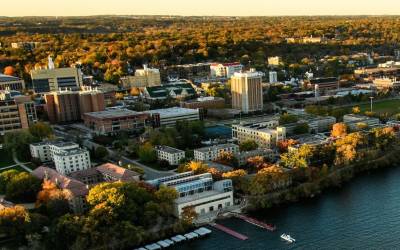
Image: University of Wisconsin-Madison
- Read more
The University of Wisconsin-Madison welcomes the opportunity to be included as the only U.S. partner participating in the CUSSH project. This project aligns well with our Global Health Institute (GHI) focus on the root determinants of health from across multiple sectors. Our Health-Oriented Transportation (HOT) initiative emerged from one of our institute’s key concentration areas, Health/Climate/Cities and is a perfect fit for the CUSSH project. We assess the benefits of active transportation as a key strategy to both mitigate climate change and provide immediate health co-benefits by reducing the risks from chronic diseases. The CUSSH partnership has become an integral and exciting component of the HOT project and has potential to inform policies and investments in urban infrastructure that promote healthful physical activity.
GHI’s HOT initiative and research for the CUSSH project are led by Assistant Research Scientist Samuel Younkin, Ph.D. Younkin arrived at GHI in 2016 with a decade of experience in analyzing complex health data, including a postdoctoral fellowship in biostatistics at the Johns Hopkins Bloomberg School of Public Health. Other CUSSH team members include research interns Henry Fremont (B.A. in Applied Mathematics) and Sam Kruse (B.S. in Mathematics).
For CUSSH, HOT is analyzing travel survey data to estimate the health effects of existing active transportation as well as hypothetical transportation scenarios. The evidence gained from these analyses will help determine the importance of policy changes that encourage bicycling and walking. HOT is also creating tools such as web-based applications and software packages to make evidence of the health benefits of active transportation available to everyone. Follow GHI on Twitter, Facebook, and YouTube.
February 2019: Update from Kenya - Message from Professor Blessing Mberu, CUSSH Leader of APHRC team and joint leader of WP4
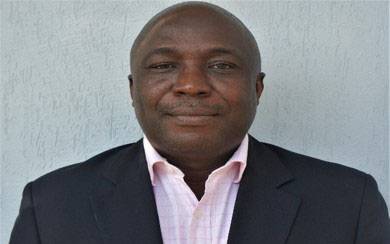
The Africa Population and Health Research Center’s CUSSH Team are delighted that key activities under the project are simultaneously being rolled out in Kenya’s partner cities: Kisumu and Nairobi.
Image: Professor Blessing Mberu
- Read more
In Kisumu, a big public engagement workshop few weeks ago on the application to the Green Climate Fund (one of the priority areas identified by the County) was successfully undertaken, with key dimensions of the application and the County, stakeholders and communities’ priorities identified and expatiated. The formation of a technical team to undertake the actual drafting of the proposal is the agreed logical next step. A follow-up meeting for the official flagging off of the spatial planning process was undertaken on the 13th of February, 2019. Following the official ceremony, further discussions and engagements with a steering committee on the details of the implementation of the spatial plan and the specific support by the CUSSH consortium is ongoing.
For the city of Nairobi, engagement with the City officials continued on the 14th of February, 2019, with focus on two key areas identified by the County namely, the implementation of the spatial planning process in two pilot areas in the city and the next steps moving forward: Information gathering and sensitization; preliminary sketches of the plan (a vision)/strategic level; and stakeholder engagement.The second priority area was in linking the Nairobi area plans to a Green Climate Fund application for the city. While all these activities are at infancy and yet to gather full speed, with challenges of managing expectations from local partners ongoing, we are satisfied that the process is on and our work is cut out for us. We are beginning to see the core principles of the CUSSH approach taking shape, which is anchored on enabling and supporting cities to effectively engage and collaborate with core stakeholders, via a participatory approach, in order to deliver significant, measurable change. Our hope on the possibility of addressing the complex nature of urban systems through the establishment of a systems thinking approach is also heightened and strengthened.
30 January: London stakeholders round table
On 30 January 2019, CUSSH held a stakeholder engagement meeting with some of our London partner organisations. Participants from different organisations – including UCL, LSHTM, Imperial College, GLA, Peabody, and Greenwood Strategic Advisors – attended the meeting.
- Read more
The goals of the meeting were twofold. Firstly, it provided an opportunity for different partners and stakeholders to gain a better perspective on each other’s expertise, experience, and current goals and ambitions. Secondly, it provided a platform for fostering collaboration between these partner organisations. The major focus of discussions was around the issues related to the Thamesmead/Bexley area in London. Ideas were exchanged around the availability and usefulness of a diverse set of modelling approaches available within the CUSSH and Greenwood teams and how these can be used to address a range of problems from community-driven change initiatives to macro-level large-scale investment schemes. The CUSSH researchers will follow up with the participants to plan pathways for collaboration.
21-23 January 2019: China CDC research visit in London
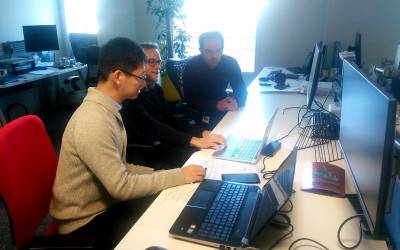
For period of three days, Yanlin Niu, a PhD student from China CDC, who also works in Beijing CDC, visited London with the aim of furthering the shape of the CUSSH work for Beijing.
Image: Workshop participants
- Read more
A primary purpose of the visit was to determine several city objectives which can be assessed within a CRAFT modelling analysis. This will investigate the impacts of Beijing’s key policies relating to energy, transport, buildings, green infrastructure and waste management in efforts to reduce GHG emissions and air pollution in the city. It was noted that Beijing sets both short-term and long-term targets with the short-term targets being updated every five years. An interesting component of the work for Beijing may be the tracking of these targets in relation to particular policies which may be observable over the time-scale of the CUSSH project.
16-17 January 2019: Public participation workshop in Kisumu
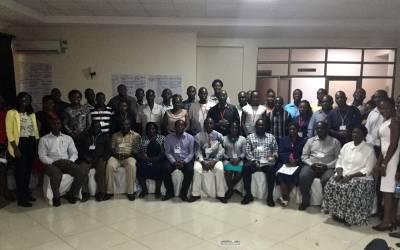
The APHRC team, in conjunction with Kisumu County, facilitated a public participation workshop in Kisumu on January 16-17, 2019 in relation to a proposal application to the Green Climate Fund (GCF).
Image: Participants of the Kisumu workshop
- Read more
The workshop, hosted by the County Government of Kisumu, brought together key stakeholders in government including Members of County Assembly (MCAs), representatives from local community-based organizations, resident association groups, and the private sector. Discussions centered on the seven areas previously identified namely: 1) green energy; 2) solid waste management; 3) green routes for active transport; 4) flooding risk control; 5) green infrastructure; 6) sewage treatment and 7) affordable housing.
January 2019: London stakeholders collaboration update - CUSSH team visit to Thamesmead
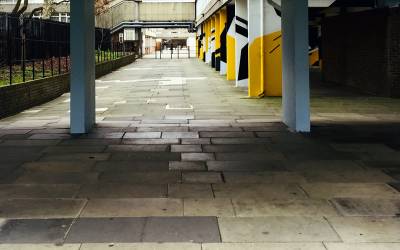
On 16 January 2019, a group of CUSSH researchers (Nici Zimmermann, Jo Hale, Aarathi Prasad, Arash Baghaei Lakeh, and Zhou Ke) visited the Thamesmead housing estate.
Image: London Thamesmead estate. Photo: Aarathi Prasad
- Read more
During this half-day event, CUSSH researchers met with Nicola Murphy-Evans of Greater London Authority (GLA) and several members of the Peabody team, which is the social landlord of Thamesmead. The CUSSH researchers were given a tour of Thamesmead and subsequently discussed the possible streams of collaboration that meet the needs and interests of Peabody, GLA, and the CUSSH consortium. Thamesmead was built in the mid-1960s by the Greater London Council as a response to the housing problems of the time. It is located in the east of London on the south bank of the Thames. The area of the housing complex has a relatively high coverage of green space. However, as noted by Peabody and GLA, the green space is not being used and its potentials are not being exploited. Furthermore, Peabody is determined to help its residents to have a higher sense of community and increase their levels of social cohesion in Thamesmead.
Peabody is leading several regeneration initiatives in Thamesmead to increase the use of green spaces. This is very much in line with the European Commission-funded project (CLEVER) that the Environmental Team of GLA is a partner of. As part of the CLEVER project, participating cities will explore and implement nature-based solutions and innovations in their regeneration projects. The GLA is keen on using such approaches in collaboration with Peabody to design regeneration strategies for the future of Thamesmead.
Several possible channels of collaboration were discussed by the CUSSH researchers, GLA, and Peabody. Specifically, there was a strong interest in a behavioural change analysis of the issues at Thamesmead, which seemed to be a promising ground for integrating different aspects of activities in CUSSH, Peabody, and the CLEVER project.
2018
- 12-13 November 2018: WP3 Modelling Workshop, London
The WP3 workshop held at UCL 12-13 November brought together participants from all the modelling teams involved in CUSSH to refine the framing of the modelling work that has been drafted in the last couple of months, particularly at the first workshop at IIASA in June. Two days of intense and very productive discussions resulted in a clearer understanding of the way forward, tasks and responsibilities for the next phase of the project.
CUSSH cities span a wide range in terms of size and socioeconomic conditions and are facing different health and environmental challenges. Hence, focus topics for the modelling work done under CUSSH naturally differ from city to city, and not all cities will see the same set of models lined up. Nonetheless, there are common core elements to the analysis: One important first step will be an assessment of the existing burdens on population health in each of the cities. This analysis, which constitutes the first part of the CRAFT (City Rapid Assessment Framework for Transformation) analysis developed by LSHTM and UCL, will highlight the main problem areas in each city. It will be followed up and complemented by an initial assessment of city scale policy interventions, drawing from both the suggestions of city stakeholders, as well as other conceivable measures which may emerge from the initial burden assessment. In parallel, preparation work for setup and calibration of the more sophisticated models available within the team will be going on, which will be used for a deeper analysis of the policy interventions identified in the CRAFT analysis and should lead to initial results by the end of year two.
WP3 team: (from left) Andrew Ibbetson (LSHTM), Gregor Kiesewetter (IIASA), Clare Goodess (UEA), Phil Symonds (UCL), Tao Xue (PKU), Sam Younkin (University of Wisconsin), James Milner (LSHTM), Kaveh Dianati (UCL), Jon Taylor (UCL), Arash Baghaei Lakeh (UCL), Paul Wilkinson (LSHTM), Mike Davies (UCL).
- 31 October 2018: Training: Engaging with Policy Makers
First training session of the London Hub for Urban Health Research:
To shape the actions of government leaders towards achieving sustainable and healthy cities, it is essential we consider policy and implementation early on and throughout the research process. Therefore, on 31st October the first joint training session of the London Hub focused on lessons learned and practical guidance for engaging with policymakers, led by Helen Pineo (UCL), Kathryn Oliver (LSHTM) and Susan Michie (UCL).
Helen Pineo opened the session by reminding us of a key message from Charlotte Marchandise-Franquet (Deputy Mayor of Rennes): policy making is a very complex process! Helen illustrated this with examples from Cheltenham and Southwark that led us through a policy-maker’s viewpoint, and highlighted the importance of understanding their constraints, expertise and mandate. Kathryn Oliver’s presentation, ‘How to make friends and influence policy’, focused on her three golden rules: know what you want to say, who to say it to, and why you’re saying it; as well as the main barriers and facilitators to using evidence in policy making. Building on these points, Susan Michie shared reflections from her work with policy makers as a behavioural scientist, including the value of using shared frameworks to facilitate communication and the importance of aligning agendas and incentives between scientific and policy spheres.Following presentations from the panel, the session continued with an interactive discussion. Some of the questions we tackled included how to begin the conversation with policy makers, how to understand where we as researchers add value, and how to proceed when conflicts of interest arise. We were also able to discuss practical steps to consider as we engage with CUSSH partner cities, including advice on using external facilitators, framing secondments and recording data from our engagement activities.
As well as providing an opportunity to develop our skills in policy engagement, the training session was also a chance for members of the CUSSH and Pathways teams to meet one another, learn together, and share ideas for collaboration. One emerging plan is to curate a blog for the London Hub, which among other topics would report on this and future training.
Speakers: Susan Michie, Kathryn Oliver and Helen Pineo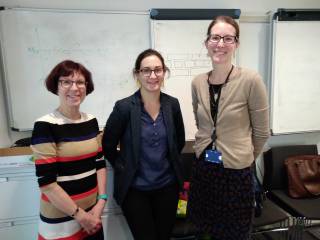
- 15-16 October 2018: Healthy Urban Design conference, London
Phil Symonds and Nici Zimmermann attended the second annual Healthy Urban Design conference at the Royal College of Physicians, London. Phil and Nici gave a joint presentation entitled ‘Participatory system dynamics and health impact modelling for green infrastructure in London’ and they both presented posters, all of which will be available on the conference website.
It was a well-attended conference with over 300 delegates from various backgrounds including industry, policy making and academia. Prof Howard Frumkin, head of the Wellcome Trust’s ‘Our Planet, Our Health’ programme gave the opening keynote presentation.
Nici Zimmermann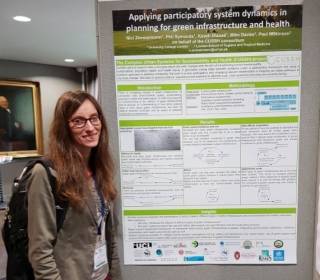 Phil Symonds
Phil Symonds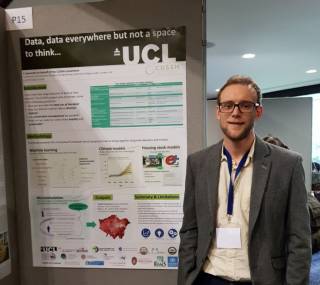
- 1-4 October 2018: WHO Healthy Cities confernce, Belfast
We were asked to organise a CUSSH side event at the World Health Organization International Healthy Cities Conference 'Changing cities to change the world’ that was held in Belfast, Northern Ireland recently. Our side event ('Building sustainable, healthy and equitable cities') was successfully held on Monday 1st October and, due to ‘popular demand’, was repeated on the Tuesday. Mike also gave a separate presentation about CUSSH on the Monday.
- October 2018: Niarobi and Kisumu update
Meeting with Nairobi County officials: On October 15th, the CUSSH programme held a meeting with the Urban Planning department, Nairobi County to discuss the way forward for CUSSH work in Nairobi city. Discussions centered on the district area spatial plans as well as updating the development control guidelines, and the planned application to the GCF. It is intended that this application will be linked with work on developing the spatial plans for the two districts - Woodley and Kasarani. There is a need to have updated maps of the planning areas and the existing city plans to be shared with the team. It was agreed that we will aim to hold a wider stakeholder workshop late January/early February to ensure inclusion of other relevant departments in the spatial planning process. Lastly, an MOU with the County is being prepared.
Meetings with Kisumu County officials: The meeting with the Urban Planning/climate change/renewable energy team from Kisumu took place on October 16th. The aim was to discuss details of the planned CUSSH engagement with the County. Discussions were held about the spatial plan for the entire county and the planned GCF application. The County is at the start of the spatial planning process, which is timely for CUSSH to make input into the work. There is a need for wide stakeholder consultation to ensure there is buy-in for the spatial plan. The department is in the process of setting up a steering committee which shall take the spatial planning forward. The next steps to get the work underway include signing of the MOU; production of maps for the planning area; steering committee set up and making estimates of the health and environmental impacts of suggested GCF areas for inclusion in the concept note.
UCL and APHRC colleagues with Kisumu County representatives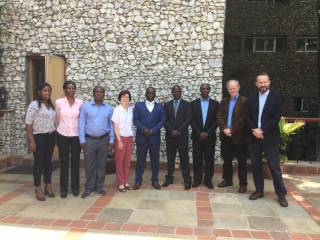
- October 2018: China update
- 8 October - Peking University (PKU) and China Centre for Disease Control (China CDC)
Nici Zimmermann and Gregor Kiesewetter participated in the meeting via Skype. Qiyong Liu and Yujuan Yue from China CDC were joined by Yanlin Niu from Beijing CDC. Tong Zhu and Tao Xue from PKU hosted the event. The group had a useful set of discussions including some very helpful clarification regarding the various governmental organisations relevant to CUSSH. The group also discussed preparations for the forthcoming CUSSH Work Package 3 workshop that will be held in November in London. The PKU team presented some initial work relating to estimates of PM2.5 concentrations for Beijing, Ningbo and Nairobi.
- 9 October - Peng Gong from Tsinghua University
Peng Gong led the recent Lancet Commission on Healthy Cities in China: unlocking the power of cities for a healthy China. The work has a very high profile in China and has stimulated a lot of interest from policy makers that is directly relevant to CUSSH. Tsinghua University recently asked Peng to set up a new ‘Urban Institute’ and it launched on Thursday 11th October. It is planned to set up a link between the new Institute and the CUSSH project given their shared aims and emphasis placed on ‘systems thinking’.
- 10 October – presentation to the ‘XIN Forum’
From October 9th to 11th, Tsinghua University, Tel Aviv University, and the Israeli Embassy at China jointly held the 5th XIN Forum at Tsinghua University. Academics, entrepreneurs, investors and government officials attended the Forum and exchanged views on technology innovation and collaboration. Mike gave a presentation about the CUSSH project to kick off the second day of the event.
Mike Davies, Xin Forum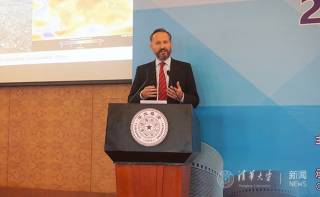
- 11th October - China CDC, Beijing CDC and Ningbo CDC
Qiyong Liu and Yujuan Yue from china CDC were joined by Xiuying Liu, Ying Deng, Gang Li and Yanlin Niu from Beijing CDC and also Tianfeng He from Ningbo CDC. The CUSSH project was very positively received by the CDC teams. It is an excellent fit to the ‘Healthy China 2030’ initiative and the corresponding ‘Healthy Beijing 2030’ and ‘Healthy Ningbo 2030’ strategies. There is also a strong link to the ‘Health/Pollution Project’ in Beijing led by Gang Li. Useful discussions took place related to details of some preliminary analyses that will feed in to a CUSSH multi-sector workshop that is planned to be held in Beijing in Spring 2019.
UCL and CCDC colleagues in Beijing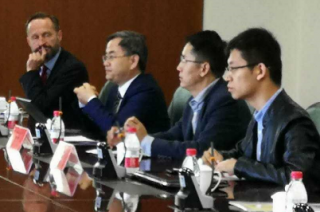
- 6-7 September 2018: WPI workshop
Systems Thinking for sustainable and healhy urban transformation:
On the 6-7th September CUSSH WP1 held a two-day conceptual development workshop hosted by the London School of Hygiene and Tropical Medicine. Participants included representatives from policy, practice and research across a broad range of disciplines including public health, urban planning, architecture, engineering, ecology, transport, human behavior, urban governance and environmental research. Also in attendance were representatives from the CUSSH cities of Nairobi and Kisumu, Rennes and China together with members from each of the CUSSH project teams.
The workshop aimed to develop a conceptual framework of the interconnection between health and urban sustainability through a visual mapping process. Mike Davies and Tony Capon opened the workshop followed by short presentations by Monica Constestabile, Andy Haines, Sue Parnell, Jonathan Taylor, Paul Wilkinson and Peter Head which provided insight on particular challenges from different stakeholder perspectives. On the second day, Sani Dimitroulopoulou shared insights from the recent PHE review on air pollution and Charlotte Marchandise-Franquet discussed some of the challenges and opportunities from a political perspective.
In groups and plenary we considered the key issues facing cities, how they are connected and what can be done across different urban structures to enable transformation. Through a shared understanding of the dynamic pieces within the urban system we were able to developed a hypothesis of cause and effect which will inform an evidence review. System thinkers Nici Zimmerman, Arash Baghaei Lakeh and Kaveh Dianati from WP4 helped us to consider problems and solutions from a systems perspective.
Highlights of the workshop included the chance for members of CUSSH to interact and connect with others working within and beyond the parameters of the CUSSH project. The workshop enabled greater understanding of the decision-making context in which change might be achieved, providing a shared understanding of the importance of politics, barriers and culture and the importance of governance, economics, moral dimensions. The diversity of perspectives, expertise, stakeholders brought new and challenging perspectives to harness into action.
WP1 is now working towards producing some conceptual publications from the information collected during the workshop, and those from WP1 in Australia are slowly recovering from jetlag!
WP1 workshops participants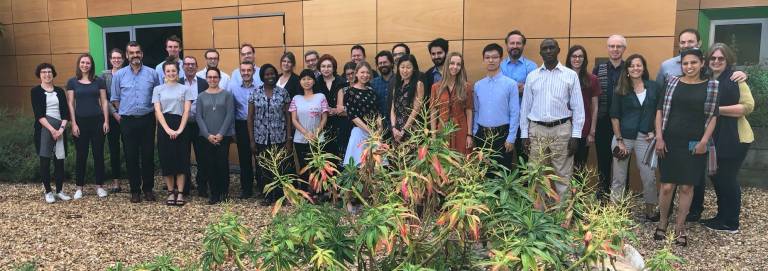
- 10-11 July 2018: Kismumu workshop
We are very pleased to report that a very productive workshop took place on the 10th and 11th of July 2018. The workshop was officially opened by the County Executive committee member for Energy and Climate Change who said the CUSSH program was timely to address challenges facing the city in terms of health, climate change and linkages between the two.
The workshop was attended by Kisumu county government officials from various departments, representatives of residents of Kisumu city as well as by representatives from non-governmental organizations (NGOs) and community based organizations (CBOs) working in the county. An objective of the first day of the workshop was to introduce the CUSSH program to the participants, most of whom were new to the program. This was followed by a presentation of the participatory and systems thinking that the work will employ. Finally presentations were made on the green climate fund (GCF) as well as on the housing project that the county government will be implementing in the near future, with funding from the World Bank.
After the morning plenary, participants went into groups to prioritize the areas the CUSSH program would address, after which we reconvened for group presentations of the discussions.
Day two began with a plenary session and then more group work. The deliberations resulted in the following agreements: to work together on a new integrated spatial plan as a project for which CUSSH can immediately engage with the county, coupled with a series of GCF applications. It was agreed that CUSSH would contribute to two ‘small’ GFC bids (approx. $10 million each) which have a shorter turn-around time; and a large bid integrated across the suggested priority areas (approx. $250 million). A final session of group work developed various action plans and indicators of CUSSH success. We closed the workshop with the exciting agreement to have an MOU signed between Kisumu county and the CUSSH team, and a strong commitment to work together on the above items.
Group photo on the last day of the workshop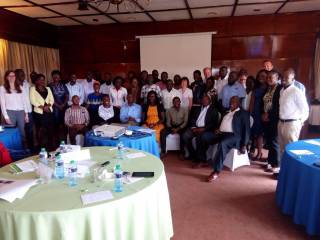
- 18-19 June 2018: System Dynamics training
Nici Zimmermann ran two days of system dynamics training in London on 18 and 19 June. The training covered systems thinking, causal loop diagrams, system archetypes, participatory system dynamics and quantitative modelling. A very engaged group of 10 participants jointly modelled river flooding, urban dynamics and explored the dynamics of love.
Details of the event (slides, literature, models, video recordings of the event) can be accessed via Nextcloud and Dropbox.
Please contact Nici for further details: n.zimmermann@ucl.ac.uk
Participatory modelling of urban dynamics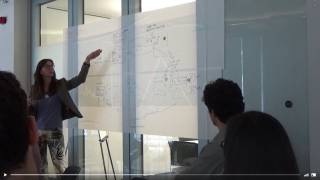
- 6-7 June 2018: WP3 modelling workshop in Vienna, Austria
The International Institute for Applied Systems Analysis (IIASA), the WP3 leader, hosted a two-day intensive CUSSH workshop in June. CUSSH colleagues from IIASA, UCL, LSHTM, UEA, BH and University of Wisconsin met at the IIASA premises in Laxenburg to discuss coordination of the CUSSH modelling programme. We had a very productive meeting and made good progress in developing plans for the modelling work for each of the CUSSH cities. A detailed report of the meeting can be found on Nextcloud.
IIASA is housed in the Blauer Hof Palace in Laxenburg, Austria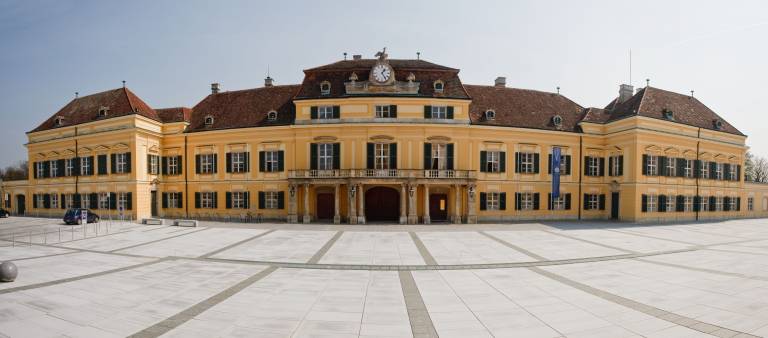
- 17 May 2018: APHRC meets county officials in Kisumu
Caroline Kabaria, Mwangi Chege and Kanyiva Muindi from the African Population Health Research Centre (APHRC) team had a successful meeting with county officials at the Kisumu county offices on Thursday, 17 May. They presented the CUSSH programme to both old and new county officials - most were new given the change in government after last year's elections. The programme was well received, the Kisumu representative are excited about the CUSSH work and are looking forward to the July CUSSH workshops. There was also a special opportunity to brief the governor on the program (see picture), and he is supportive of the planned work.
It was exciting to note that the county took into consideration the issues they raised during the HINIS (the CUSSH pilot) project meetings, when making plans for the next five years. Most, we were informed, have been included in the County Integrated Development Plan (CIDP), which lays out the development plans for the entire county over the next five years. CUSSH has also been included in the CIDP, and the annual Development Plan (ADP), under the climate change group.
APHRC meeting representatives from Kisumu County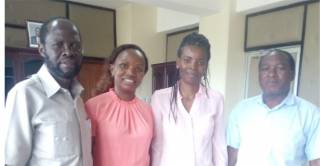
- 14-17 May 2018: City engagement workshop in Rennes, France
Between 14 and 17th May, a team of seven representatives from UCL, LSHTM, Buro Happold and HEAL spent time meeting politicians and key stakeholders in Rennes (France).
Several projects at EHESP (the national school of public health) including Equit’Area and GREENH-City and MARTISA have interesting overlaps with the CUSSH project and potential to collaborate.
The Metropole of Rennes has recently announced ten targets for transitioning to a low carbon economy, to result in a 50% reduction in GHG emissions by 2030 and these targets will form a basis for some of our work with Rennes.
Meetings with the Vice President and Deputy Mayors of Rennes Metropole, as well as those responsible for Rennes Plan for Climate, Air and Energy were positive. We’re now defining the direction of collaboration between Rennes Metropole and CUSSH.
Additional meetings with Rennes’ Network of Urbanism and Health, Brittany’s Regional Health Observatory and Air Breizh were also fruitful.
CUSSH team in Rennes, France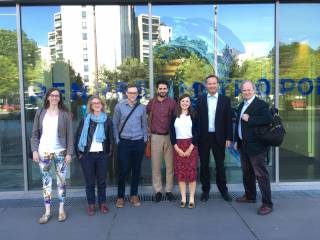
 Close
Close

